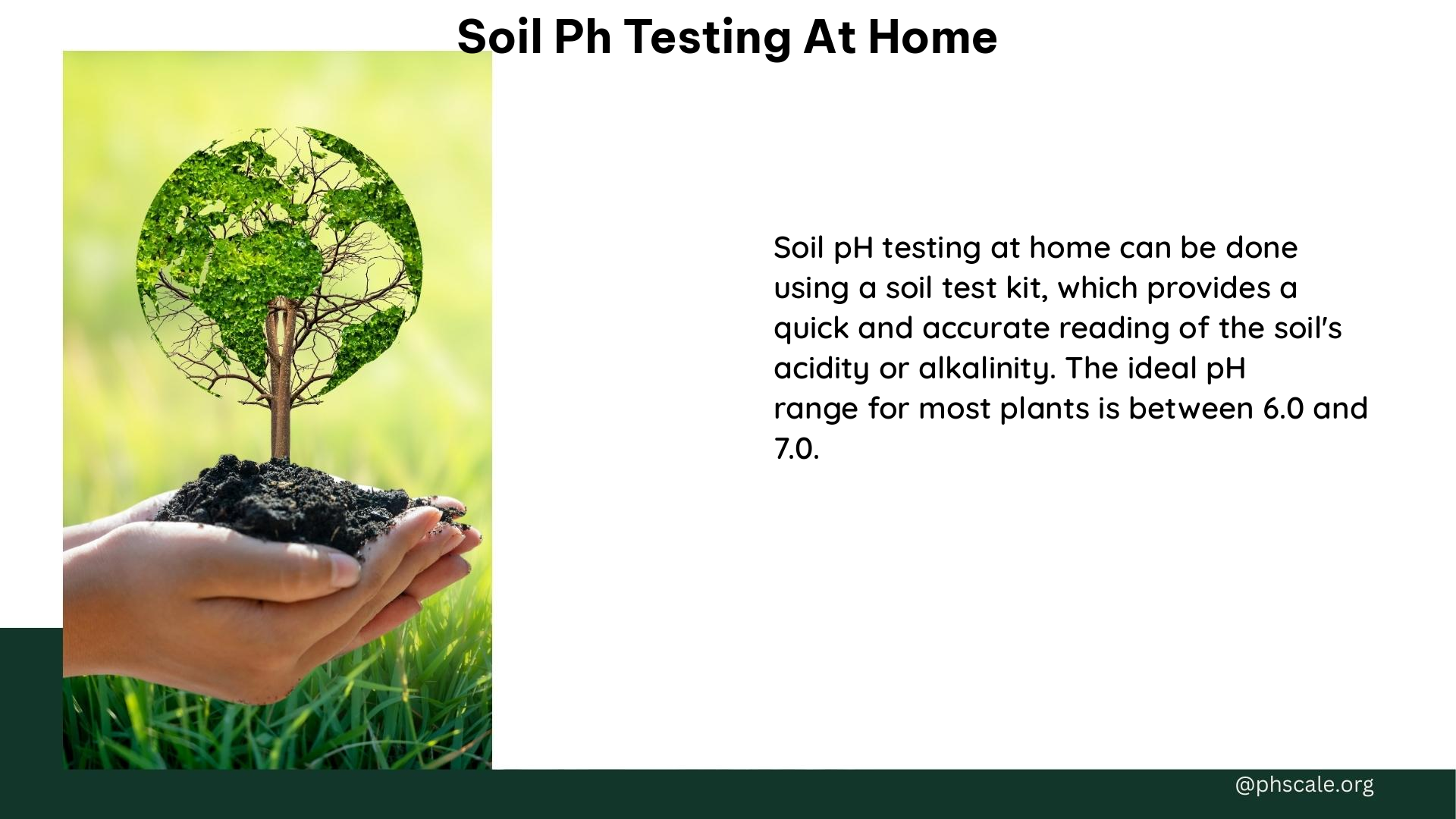Soil pH testing is a crucial step in maintaining a healthy garden or lawn. By understanding the pH level of your soil, you can make informed decisions about the types of plants that will thrive and the amendments needed to optimize soil conditions. In this comprehensive guide, we’ll explore various methods for testing soil pH at home, provide tips and considerations, and discuss the importance of balancing soil pH for optimal plant growth.
Methods for Testing Soil pH at Home
1. Vinegar and Baking Soda Method
This simple DIY technique involves mixing soil with distilled water and then adding either vinegar or baking soda to determine the soil’s pH level. If the baking soda mixture fizzes, the soil is acidic. If the vinegar mixture fizzes, the soil is alkaline. If neither reacts, the soil is neutral.
2. Soil pH Test Kits
Soil pH test kits are an affordable and convenient option for home gardeners. These kits typically involve mixing a soil sample with a testing solution and comparing the results to a color-coded chart. Prices for these kits range from $10 to $50, and they provide instant readings.
3. Digital pH Meters
Digital pH meters offer a more precise way to measure soil pH. These meters provide a specific numerical reading, making them more accurate than analog probes. Prices for digital pH meters range from $20 to $100.
4. pH Testing Strips
pH testing strips are another inexpensive option for soil pH testing at home. You simply mix a soil sample with distilled water, dip the testing strip into the mixture, and compare the color change to a provided chart. These strips typically cost around $12 for a pack of 100.
Tips and Considerations

- Use Distilled Water: It’s essential to use distilled water when testing soil pH to avoid any impurities that could skew the results.
- Follow Kit Instructions: Precise instructions are crucial for accurate results when using soil pH test kits.
- Consider Soil Compaction: Soil pH meters can help identify compacted areas, which can affect soil health and plant growth.
- Lab Tests: While more expensive, lab tests provide detailed information about soil pH and nutrient levels. They are recommended every two to five years.
Common Contaminants and Substances in Soil
- Heavy Metals: Lead, mercury, and other heavy metals can contaminate soil and affect plant growth.
- Pesticides and Fertilizers: Chemical residues from pesticides and fertilizers can alter soil pH and harm microorganisms.
- Invasive Worms: Non-native worms like the Asian jumping worm can disrupt soil ecosystems and affect soil health.
Balancing Soil pH
- Acidic Soil: Add garden lime to raise the pH.
- Alkaline Soil: Add garden sulfur to lower the pH.
- Neutral Soil: Add compost to maintain a neutral pH.
Helpful pH Ranges for Plants
- Most Plants: Thrive in a pH range of 6.0 to 7.5.
- Acid-Loving Plants: Prefer a pH around 5.5 (e.g., blueberry bushes).
- Alkaline-Loving Plants: Prefer a pH above 7.5 (e.g., forsythia).
History of Soil pH Testing
Soil pH testing has evolved over time, from simple DIY methods to more advanced laboratory tests. The development of digital pH meters and specialized kits has made it easier for gardeners to monitor and adjust their soil pH at home.
References
- https://www.familyhandyman.com/article/how-to-test-soil-ph/
- https://www.thespruce.com/how-to-test-soil-acidity-alkalinity-without-a-test-kit-1388584
- https://www.finegardening.com/article/5-easy-ways-to-test-your-garden-soil-ph-at-home
- https://www.homedepot.com/c/ai/how-to-test-soil-ph/9ba683603be9fa5395fab90d0c430b9
- https://www.almanac.com/content/3-simple-diy-soil-tests
